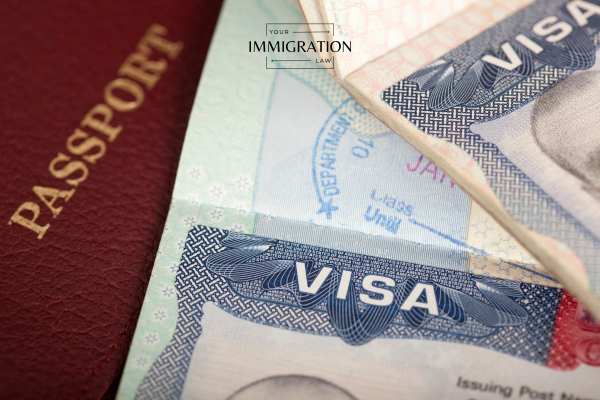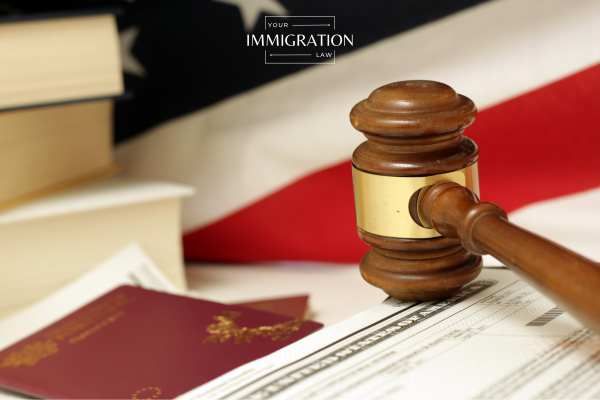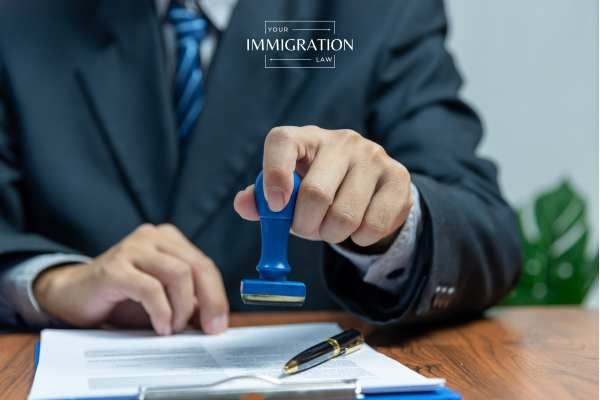Athletes from around the world often seek to compete or perform in the United States, but entering the country requires the appropriate visa. Whether you're a professional athlete, a coach, or essential support personnel, securing the right visa for athletes is crucial to ensure compliance with U.S. immigration laws. There are different visa categories available depending on your level of competition, the nature of your athletic career, and the duration of your stay in the U.S.
Navigating the complexities of U.S. immigration as a foreign athlete can be overwhelming. Working with an experienced immigration attorney can help simplify the visa application process and increase your chances of obtaining the proper nonimmigrant visa. Call Your Immigration Law at (313) 631-8080 to discuss your immigration options and ensure a smooth process.
P-1 Visa: The Professional Athlete's Pathway
The P-1 visa category is one of the best options for P-1 athletes who want to compete in the U.S. on a temporary basis. This nonimmigrant visa is designed for individual athletes or members of an athletic team who have participated in international competition and earned international awards. The P-1 visa category is available to those who have a distinguished reputation and a high level of performance in their sport. It allows athletes to enter the U.S. to participate in specific competitions, seasons, or tours, often requiring adherence to competition schedules set by prestigious organizations.
P-1A Visa vs. P-1B Visa
The P-1A visa is issued to athletes who are internationally recognized and coming to the U.S. to compete individually or as part of a national team or foreign-based sports team. These athletes must demonstrate a high degree of skill, a distinguished reputation, and a significant level of performance in their sport through international awards, rankings, or other professional honors. P-1A visa holders are granted entry for the duration of their competition or sporting event, based on specific competition schedules.
The P-1B visa is intended for entertainers, including athletes who perform as part of entertainment groups, such as exhibition teams. The group must have sustained international acclaim, and the visa is granted for the duration of the event, tour, or series of athletic events.

Additionally, the P-1S visa category is available for essential support personnel who provide services in an essential capacity, such as coaches, trainers, or other staff members critical to the success of P-1 visa holders. For family members, the P-4 visa allows spouses and children to accompany P-1 athletes and remain in the U.S. for the same period of time as the primary visa holder.
Why Athletes Need U.S. Visas
Athletes seek opportunities in the U.S. for various reasons, whether to compete in high-level leagues, join a national team, train with elite coaches, or participate in international competition. Many foreign athletes come to the U.S. to join major sports leagues or perform in artistic performances and cultural events that promote international sportsmanship. The United States offers exceptional career opportunities for athletes, from professional sports leagues to amateur sports teams or individual competitions. To participate legally, athletes must secure the right visa options that correspond with their purpose in the U.S., whether they are competing, training, or performing.
The correct visa allows athletes and their essential support personnel to enter the U.S. and avoid legal complications that could disrupt their careers. Each visa has specific requirements that must be met, making it important for athletes to understand which visa categories are the best fit for their situation.
Types of U.S. Visas for Athletes and Their Requirements
There are several visa categories available for athletes who wish to compete or work in the United States. These temporary visas cater to different levels of athletes, from amateurs to professionals, and vary depending on the type of activity and the athlete’s status.
P-1 Visa
The P-1 visa is divided into two categories: the P-1A visa and the P-1B visa. The P-1A visa is for internationally recognized athletes who are coming to the U.S. to participate in specific athletic competitions, either individually or as part of a national team or foreign-based sports team. These athletes must demonstrate a high level of skill and level of achievement in their sport, proven by significant awards, rankings, or participation in international competition.
The P-1B visa applies to members of an internationally recognized entertainment group, including performers such as athletes in exhibition teams or shows. Both the P-1A and P-1B visas are generally granted for the duration of the event, competition, or athletic events.
Additionally, P-1 visas are available for essential support personnel who serve in an essential capacity, such as coaches, trainers, and other staff members who assist P-1 athletes in their competitions and athletic events.
Family members of P-1 visa holders can apply for the P-4 visa, allowing them to live and study in the U.S. during the period of time that the P-1 athlete remains in the country.
P-2 Visa: Reciprocal Exchange Programs
The P-2 visa is available for athletes or entertainers who are part of reciprocal exchange programs between organizations in the U.S. and other countries. This visa allows athletes to compete in the U.S. while another athlete from a U.S. organization travels abroad as part of the exchange. These programs promote international cooperation and allow athletes to showcase their talents on an international stage for a specific period of time.
P-3 Visa: Culturally Unique Performances
The P-3 visa is available for athletes and entertainers who are coming to the U.S. to participate in programs that are culturally unique. This visa is ideal for athletes performing in cultural events or artistic performances that emphasize cultural exchange or traditional performances. Like other visas, the P-3 visa is generally issued for the duration of the event or series of events, and essential support personnel can also apply for accompanying visas.
O-1 Visa
The O-1 visa category is designed for athletes with extraordinary abilities. Athletes applying for the O-1 visa must provide evidence of sustained national or international acclaim, often supported by letters from experts in their field, making this visa ideal for elite athletes who are at the top of their field. It allows athletes to work in the U.S. for up to 3 years, with extensions available in 1-year increments based on the duration of their contract or sporting event.
To qualify for the O-1 visa, an athlete must:
- Demonstrate extraordinary ability in athletics, meaning they are among the top percentage in their field.
- Provide evidence of a one-time achievement (such as a major internationally recognized award) or meet at least three of the following criteria:
- Significant awards or prizes.
- Membership in associations that require outstanding achievements.
- Published materials about the athlete in major media or trade journals.
- Participation as a judge of others in the same field.
- Leading or critical role in distinguished organizations.
- High salary or remuneration compared to others in the field.
B-1 and B-2 Visas
For athletes visiting the U.S. temporarily, the B-1/B-2 visas are short-term nonimmigrant visa options. The B-1 business visitor visa covers amateur athletes who are not paid for their participation in competitions but may accept prize money. The B-2 Visitor Visa is typically for tourists or visitors, including athletes traveling for short-term participation in amateur sports teams or athletic events. These visas are generally granted for up to 6 months, depending on the event's duration and the athlete's needs.

Athletes may also use a B-1 or B-2 visa for short-term events, as long as they meet the requirements for amateur participation. These temporary visas are suitable for athletes who do not intend to work or stay in the U.S. long-term. In some cases, athletes from countries participating in the Visa Waiver Program may be eligible to compete in certain events without a visa, provided their stay is short-term and meets all the visa waiver program requirements.
H-2B Visa
The H-2B visa is used for temporary or seasonal employment, including athletes hired for seasonal sports teams or short-term coaching roles. Employers must demonstrate that the need for the athlete’s services is temporary and that there are no qualified U.S. workers available to fill the position. The H-2B visa is valid for 1 year but can be extended for up to 3 years in some cases.
To qualify for the H-2B visa, athletes must:
- Be offered a temporary or seasonal position that is not available year-round.
- The employer must prove that there are no sufficient U.S. workers available to fill the position.
- The employer must file a temporary labor certification from the U.S. Department of Labor before submitting the visa petition for an H-2B visa.
F-1 Visa
The F-1 student visa is for student-athletes enrolled in full-time academic programs at SEVP-approved schools. While they cannot be paid for professional competition, F-1 visa holders can participate in school-sponsored sports programs. The F-1 visa remains valid for the length of the academic program and allows for Optional Practical Training (OPT) after graduation, providing opportunities for further athletic or academic pursuits in the U.S.
To qualify for the F-1 visa, student-athletes must:
- Be enrolled in a full-time academic program at a U.S. institution approved by the Student and Exchange Visitor Program (SEVP).
- Demonstrate sufficient financial resources to cover tuition and living expenses.
- Maintain their status as a full-time student while in the U.S.
- Participate in school-sponsored athletic programs, although they cannot be paid to play professionally.
The F-1 visa allows for Optional Practical Training (OPT) after graduation, providing opportunities to continue working or training in athletic-related fields in the U.S.
Q-1 Visa: International Cultural Exchange Program
The Q-1 visa is available for athletes or entertainers who are participating in an international cultural exchange program, often sponsored by U.S. organizations, such as museums or labor organizations. The Q-1 visa allows foreign nationals to share their culture, heritage, and sportsmanship in the U.S. while promoting international goodwill. This visa is typically granted for up to 15 months.
How to Get an Athlete Visa
The process for obtaining an athlete visa to the U.S. depends on the type of visa sought (P-1, O-1, B-1/B-2, H-2B, or F-1). Below is an outline of the general process for each, along with the expected processing times for each visa petition:
P-1 Visa (for Professional Athletes or Teams)
Obtaining a P-1 visa involves a specific application process designed for athletes, entertainers, and performers. A U.S. employer, sports team, or sponsoring organization must file a visa petition on behalf of the athlete.
Steps include:
- Secure Sponsorship: A U.S. employer, sports team, or sponsoring organization must file a visa petition on behalf of the athlete. This may include written or oral agreements.
- File Form I-129: The employer files Form I-129, Petition for a Nonimmigrant Worker, with U.S. Citizenship and Immigration Services (USCIS). Evidence of the athlete’s international recognition, such as awards, rankings, or participation in professional events, must be submitted.
- Petition Approval: If approved, the athlete receives an I-797 Notice of Action, which they will use to apply for the P-1 visa at a U.S. embassy or consulate.
- Visa Application: The athlete completes Form DS-160 online and schedules a visa interview with the U.S. embassy or consulate.
- Visa Interview: The athlete presents their I-797, passport, and other supporting documents during the interview. If approved, the athlete will receive the P-1 visa, allowing them to enter the U.S. for the duration of their contract.
O-1 Visa (for Athletes with Extraordinary Ability)
The O-1 visa category process is similar to the P-1 visa process, with additional documentation required to prove the athlete's extraordinary ability. A U.S. employer or agent must petition on the athlete's behalf.

Steps include:
- Employer Files Form I-129: A U.S. employer or agent files Form I-129 with USCIS, along with evidence proving the athlete’s extraordinary ability (e.g., awards, media coverage, letters from experts, or professional accolades).
- USCIS Approval: USCIS issues a Notice of Action (Form I-797) if the petition is approved.
- Visa Application: The athlete completes the DS-160 form and schedules an interview with the U.S. embassy or consulate.
- Visa Interview: During the interview, the athlete provides documents proving their qualifications and extraordinary achievements.
- Visa Issuance: If approved, the athlete receives the O-1 visa and can travel to the U.S. for work in their field.
B-1/B-2 Visa (for Amateur Athletes or Short-Term Events)
The B-1/B-2 visa is for short-term, nonimmigrant visa purposes, such as competing in events or attending conferences. Athletes must show that their stay in the U.S. is temporary and that they meet all eligibility requirements.
Steps include:
- Complete Form DS-160: The athlete completes the DS-160 visa application form online and pays the required visa fee.
- Schedule a Visa Interview: The athlete schedules a visa interview at the nearest U.S. embassy or consulate.
- Visa Interview: The athlete provides proof they are coming for a legitimate amateur competition or business purpose.
- Visa Issuance: If approved, the athlete receives the B-1/B-2 visa for the duration of their event, allowing entry to the U.S. for the specified purpose.
H-2B Visa (for Temporary Workers)
The H-2B visa allows athletes to work in the U.S. on a temporary or seasonal basis. To qualify, an employer must sponsor the athlete and prove that there are no qualified U.S. workers available for the position.
Steps include:
- Employer Files for Temporary Labor Certification: The U.S. employer must apply for a temporary labor certification from the Department of Labor, proving there are no U.S. workers for the position.
- Employer Files Form I-129: Once the labor certification is approved, the employer files Form I-129 with USCIS.
- Petition Approval: If USCIS approves the petition, the athlete receives an I-797 Notice of Action.
- Visa Application and Interview: The athlete completes the DS-160 form and schedules an interview at the U.S. embassy or consulate.
- Visa Issuance: If approved, the athlete receives the H-2B visa and can work temporarily in the U.S.
F-1 Visa (for Student-Athletes)
The F-1 student visa allows student-athletes to study full-time in the U.S. while participating in collegiate sports programs.
Steps include:
- Apply to an SEVP-Approved School: The athlete applies to and is accepted by an SEVP-approved school.
- Receive Form I-20: Once accepted, the school will provide the athlete with Form I-20, Certificate of Eligibility for Nonimmigrant Student Status.
- Pay the SEVIS Fee: The athlete pays the SEVIS I-901 fee, which registers them in the SEVIS system.
- Complete the DS-160 Form: The athlete completes the DS-160 visa application and schedules an interview at the U.S. embassy or consulate.
- Visa Issuance: Upon approval, the athlete receives the student visa and can enter the U.S. to study and participate in their school’s athletic program.
Ensure a Smooth Process for Your Athletic Career in the U.S.
Securing the right visa for athletes is essential to pursuing your career in the United States. Whether you’re a professional competitor, part of a national team, or an up-and-coming athlete from a foreign league, navigating the U.S. immigration process can be challenging. Each visa type has specific requirements, whether you're applying for a P-1 athlete visa, O-1 visa, H-2B visa, or F-1 student visa. Having knowledgeable legal guidance can make all the difference in successfully obtaining your visa and ensuring a smooth process.
If you need assistance with your U.S. visa application process, reach out to our experienced immigration attorneys. We are here to help you through every step of the process, including handling visa petitions, renewals, and extensions. Contact us today to get started on securing your U.S. athlete visa or even exploring options for permanent residence through a Green Card.